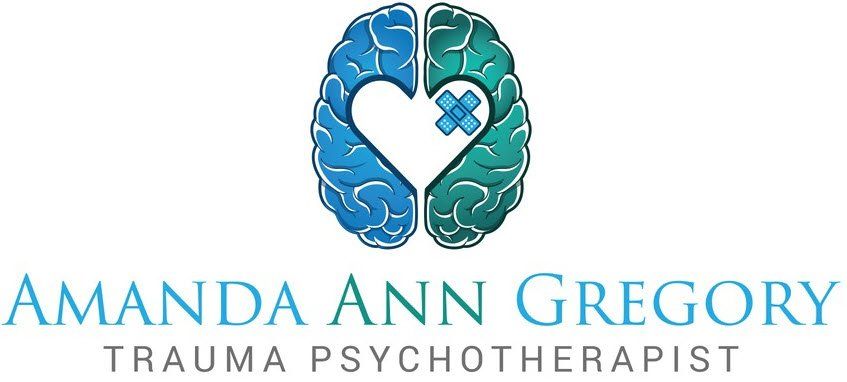Blog Layout
Panic attacks can be terrifying, as you may feel as though you are losing control of your mind or body. Here are the common symptoms of a panic attack:
- Racing heart beat
- Shortness of breath
- Nausea
- Chest tightness
- Dry mouth
- Sweating
- Chills/hot flashes
- Numbness/tingling
- Headache
- Intense fear/anxiety
- Tightness in throat
- Feeling faint/dizzy
- Feeling detached from the world or yourself
- A feeling of impending doom
If you experience a panic attack, what should you do? The best thing to do is to calm your mind and body. Consider trying these calming techniques when experiencing a panic attack:
Tell yourself, “I’m having a panic attack.”
Panic attacks have the same symptoms as many serious medical conditions, and it may feel like you’re having a medical emergency. If you are unsure, it’s best to consult with a medical professional. If you’ve experienced panic attacks before, it might helpful to remember the symptoms that you’ve experienced in the past, as these might be an indication that this is another panic attack. Remind yourself that you’re experiencing a panic attack. You can say or think these following phrases:
- I know what this is, it’s a panic attack.
- I’m ok, I’m just having a panic attack.
- I’ve felt this way before, it’s a panic attack.
- Remind yourself that panic attacks end.
The symptoms of a panic attack tend to peak within 10 minutes and typically last no more than 20 minutes. Some people report having panic attacks that last longer than this, but they usually do not occur for hours or days at a time. Human bodies usually become exhausted from a panic attack and simply tire out. During a panic attack, remind yourself that this attack will soon end. You can say or think the following:
- This usually lasts a few minutes, then it will be over.
- It’s a panic attack, it will end.
- My body will soon have enough of this.
- Practice practical coping skills that work specifically for you.
You can calm yourself during a panic attack by practicing specific copings skills that you know work for you. These skills should help you feel calm in less than 10 minutes. If you’re not sure about your specific coping skills, you can consult with a therapist who can teach them to you, or you can seek advice from members of your support system regarding what works for them. You can also experiment with many different skills to find what works for you.
Here’s a list of common coping skills that people use when they experience panic attacks:
- Deep Breathing/diaphragmic breathing
- Grounding
- Mindfulness/meditation
- Muscle relaxation
- Seeking social support
- Challenging negative thoughts
- Aromatherapy
- Light exercise
- Distractions
- Medication
- Practice your coping skills when you feel calm.
It can be difficult to remember and implement your coping skills when you’re in the middle of a panic attack. To help overcome this obstacle, try practicing your skills when you’re calm. This method can help you remember and employ these skills through muscle memory rather than through any reflective, cognitive effort or process. Consider other activities that you engage in without thinking about them or putting in so much effort. Do you have to use a lot of mental energy to brush your teeth? Or to walk? If not, that is because of muscle memory. Practicing your coping skills while you’re calm can build muscle memory, which will make it easier to use these skills when you need them.
In addition, the more that you practice your coping skills, the easier it will be to discover which skills are most effective for you. Then, you can implement these skills first while you’re experiencing a panic attack. Here’s a tip: If you practice a coping skill while you’re calm, you may feel tired or fatigued. This is usually a sign that this skill will help you calm down when you’re experiencing a panic attack.
Get your Free eBook: 25 Anxiety & Trauma Coping Hacks
Amanda Ann Gregory is a trauma psychotherapist, national speaker, and author who provides specialize speaking engagements for conferences, companies, and communities. Schedule a speaking engagement
and follow on Instagram,
Facebook,
or YouTube.
Gregory, A. (2001). Having a Panic Attack? Symmetry Counseling blog. Retrieved from https://www.symmetrycounseling.com/therapy-chicago/having-a-panic-attack/

By Amanda Ann Gregory
•
20 Apr, 2024
Christianity has never been the prescribed religion of the US. To state that the US is a Christian nation overlooks the rich diversity of religious beliefs and practices that exist and are celebrated in the country. These are six ways in which Christian privilege manifests in the US,
© 2024
All Rights Reserved | Amanda Ann Gregory, LCPC
Design & Consultation by Teresa Lauer, LMHC, GrowYourTherapyPractice.com *

